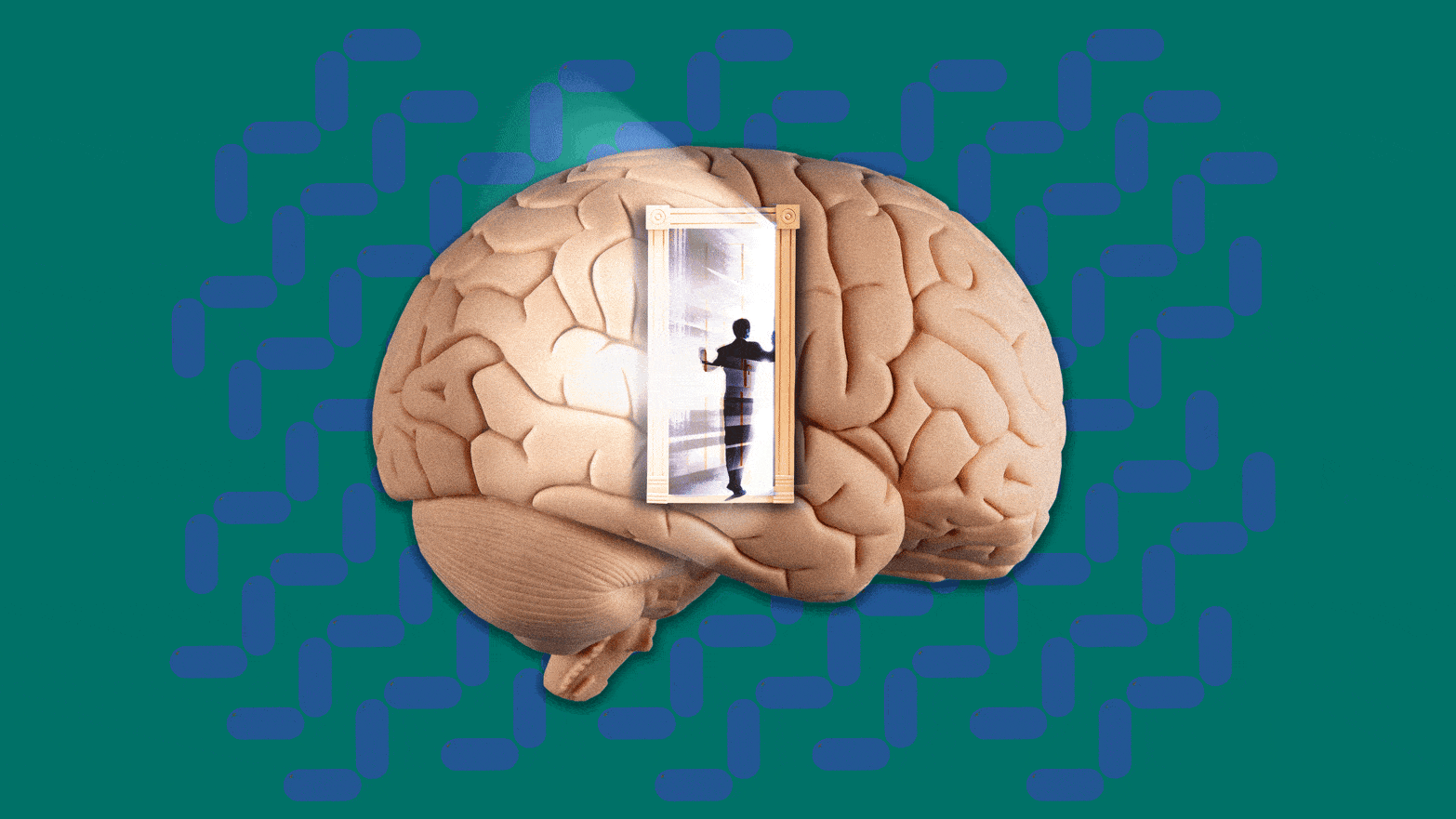Nearly 10 percent of all Americans will experience symptoms of depression every year. One of the common forms of treatment includes a combination of therapy and antidepressants. According to the CDC, around 13 percent of Americans over the age of 18 were taking antidepressants between 2015 and 2018. The most commonly prescribed form of these are called selective serotonin reuptake inhibitors (SSRIs), developed to alter serotonin flux in the brain.
I’m one of the millions that takes an SSRI—one called sertraline, to manage symptoms of anxiety, depression and obsessive compulsive disorder. Before I talked with a psychiatrist about getting on this medication, I dealt with feelings of impending doom and dread that appeared on a whim, as well as dozens of intrusive thoughts and emotions every minute. Basically, it’s like having your very own heckler yell at you all day long. Taking the medication has been immensely helpful for me, as it has for many others.
And that makes it all the more strange to recognize that, as with many other complex diseases, researchers still aren’t sure exactly what causes depression, and whether serotonin is one of the main culprits. In the 1960s, scientists serendipitously discovered that certain drugs being used as sedatives helped alleviate depression. Since these drugs acted on the serotonin system, it led to “a very simplistic idea that low levels of serotonin lead to depression,” Gerard Sanacora, a psychiatrist at Yale University and the director of the Yale Depression Research Program, told The Daily Beast.
Most scientists now adhere to the idea that there are many genetic, social and biological contributors to depression; and yet the idea of a chemical or serotonin imbalance is stuck in the popular zeitgeist. It has lingered on in large part thanks to its prominent placement in advertisements for drugs like Prozac in the late-1980s—even when psychiatric research was already shifting its perspective.
That brings us to the current debate around SSRIs. Most neuroscientists, psychiatrists, and clinicians who study and treat depression agree: Antidepressant drugs like SSRIs work as well as cognitive therapy. With the right treatment, remission rates for depression can range between 5 and 50 percent. There is no question people like myself are finding real relief thanks to these drugs.
But if depression is not quite as tied to serotonin levels as we once thought, then it raises the issue that we don’t really know how SSRIs work and why they may help some depressed people. There are several promising theories suggesting they play a role in mediating gut bacteria, to helping the brain grow new cells and require itself, to creating larger and more complex physiological changes beyond simply raising serotonin levels. But none of these theories have been proven out yet.
The ensuing discussion has boiled over into a full-on debate, pitting mainstream psychiatry against a minority of researchers who don’t think antidepressants actually work.
Every few years, a new spate of studies pops out from the shadows, supposedly “debunking” the notion of the serotonin hypothesis. These studies suggest that depression is either a result of social factors or caused by traumatic experiences, and that antidepressants either don’t work, numb emotions, or actively cause harm. Instead of medication, they believe that depression is better treated solely through therapy.
The spats between competing academics and researchers are just as intense and vicious as any other fight that takes place on the internet—featuring Twitter feuds, op-eds for think-tanks, and news outlets themselves. The shady history of the pharmaceutical industry further feeds skepticism around the efficacy of antidepressants. When antidepressant clinical trials didn’t bear out the results that were hoped for, drug companies essentially buried the evidence and biased the record in favor of antidepressants—which has only exacerbated mistrust over these drugs and their makers.
Adding fuel to the fire, one recent review study published in the journal Molecular Psychiatry reevaluated decades of past data on serotonin levels in depression, finding no evidence of the link between the two and offering this up as evidence that SSRIs don’t work or only work by blunting emotions. This conclusion drew criticism from many psychiatrists and clinicians—the study didn’t even analyze whether antidepressants work—but with support from the study’s authors, right-wing media pushed this message out anyway.
“If there are benefits, I would say that they are due to this emotion numbing effect, and otherwise, what the evidence shows is these very small differences between the drugs and placebo,” Joanna Moncrieff, a psychiatrist at University College London who led the study, told The Daily Beast. “Antidepressants are drugs that change the normal state of your brain, generally, it's not a good idea to do [that] on a long term basis.”
Moncrieff herself is an influential figure in what’s being called “critical psychiatry,” The Critical Psychiatry Network, which Moncrieff co-chairs, describes the movement on its website: “It mounts a scientific challenge to claims about the nature and causes of mental disorder and the effects of psychiatric interventions.” The researchers associated with this movement advocate against using drugs for mental health conditions, and have even promoted COVID-19 conspiracies.
If depression is caused by the interaction of stressful events and biology, as some within the Critical Psychiatry Network argue, Sanacora doesn’t follow why this means that antidepressants don’t work. “I just don't follow the logic,” he said.
Four other experts who spoke to The Daily Beast specifically pushed back on Moncrieff’s findings, most notably emphasizing that hers and her team’s paper crudely conflates two hypotheses under the serotonin theory. There’s the chemical imbalance hypothesis that’s pretty well known, which suggests a deficit in the serotonin neurotransmitter in the body leads to depression. But according to Roger McIntyre, a professor of psychiatry and pharmacology at the University of Toronto, “the notion of chemical imbalance in your brain has never been put forward as a coherent, comprehensive, evidence based proposal.”
Instead, the more prevailing serotonin hypothesis that psychiatry takes seriously and which McIntrye and others argue is supported by evidence, is that a dysregulation of the body’s whole serotonin system is what contributes to clinical depression. This includes problems in the amount of receptors available to bind serotonin, issues with how the cells fire, and numerous other disruptions on the biomolecular level. They argue that Moncrieff gets it wrong when it comes to making the grand claim that there isn’t any evidence of serotonin’s involvement in depression.
Moreover, not knowing a drug’s mechanism isn’t a good enough reason to prevent its usage if it’s demonstrably helping people. “We're very confident that SSRIs work for depression,” Tyler Randall Black, a child and adolescent psychiatrist at the University of British Columbia, told The Daily Beast. “There's reams and reams of evidence showing us that they work, but not why they work.” McIntrye pointed to the fact that we don’t even completely know how Tylenol works either—despite the fact that it’s one of the most widely used pain-relievers around the world. Tylenol also impacts the brain in unexpected ways—although it numbs social or psychological pain, it isn’t grounds for removing it from the market.
Vilifying these drugs can have unintended consequences because therapy is often unavailable, making SSRIs the only accessible option. “The demand for mental health care far outstrips the available access,” Sanacora said, adding that many Americans need to wait months to see a good cognitive behavioral therapist. Additionally, abruptly deciding to stop taking SSRIs can be dangerous: One in five patients who do this will experience flu-like symptoms, insomnia, imbalance, and other symptoms that can last for a year.
While the psychiatrists who spoke with The Daily Beast emphasized that the serotonin hypothesis was a way of simply explaining a complex disorder like depression, they did highlight it has fostered downsides over time. The story of a “‘chemical imbalance’ narrative has negatively influenced patient decision-making and patient self-understanding,” Awais Aftab, a psychiatrist at Case Western Reserve University in Cleveland, Ohio, told the Daily Beast.
Phil Cowen, a psychopharmacologist at the University of Oxford in the U.K, told The Daily Beast that socioeconomic status is a contributing factor to depression, leading those in the critical psychiatry space to believe it “gives power to doctors and industry” over patients. Ironically, it ignores the millions of “people with experience” who were helped through antidepressants.
Still, the million dollar question remains: How do SSRIs work? Aftab explained that a new leading hypothesis is that they encourage the creation of new neurons and new connections between neurons inside the brain. The hippocampus, a seahorse-shaped region of the brain important for memory and learning, shrinks and loses neurons when depression hits. SSRIs seem to stimulate the production of neuronal stem cells, which integrate into the hippocampus to restore its function and structure. Other studies suggest SSRIs help the brain rewire the connections that cause the clinical symptoms associated with depression.
He also added that SSRIs might work through different mechanisms in different individuals, so treatments may have to be more tailored to a case-by-case basis.
And more specific, individual treatments might require psychiatrists to be more honest with their patients about what we know and don’t know about these medications, versus trotting out an oversimplified (and downright inaccurate) explanation.
Black already tries to do so with his patients: “I say we know for sure it affects serotonin, but we don't know how that changes your brain and we don't know that you're lacking serotonin to begin with.” He’s found that these open discussions over what we know so far about therapy and medications pay off in the long run, and many of his patients will still opt to take the antidepressant as part of their search to find what works best for them.

